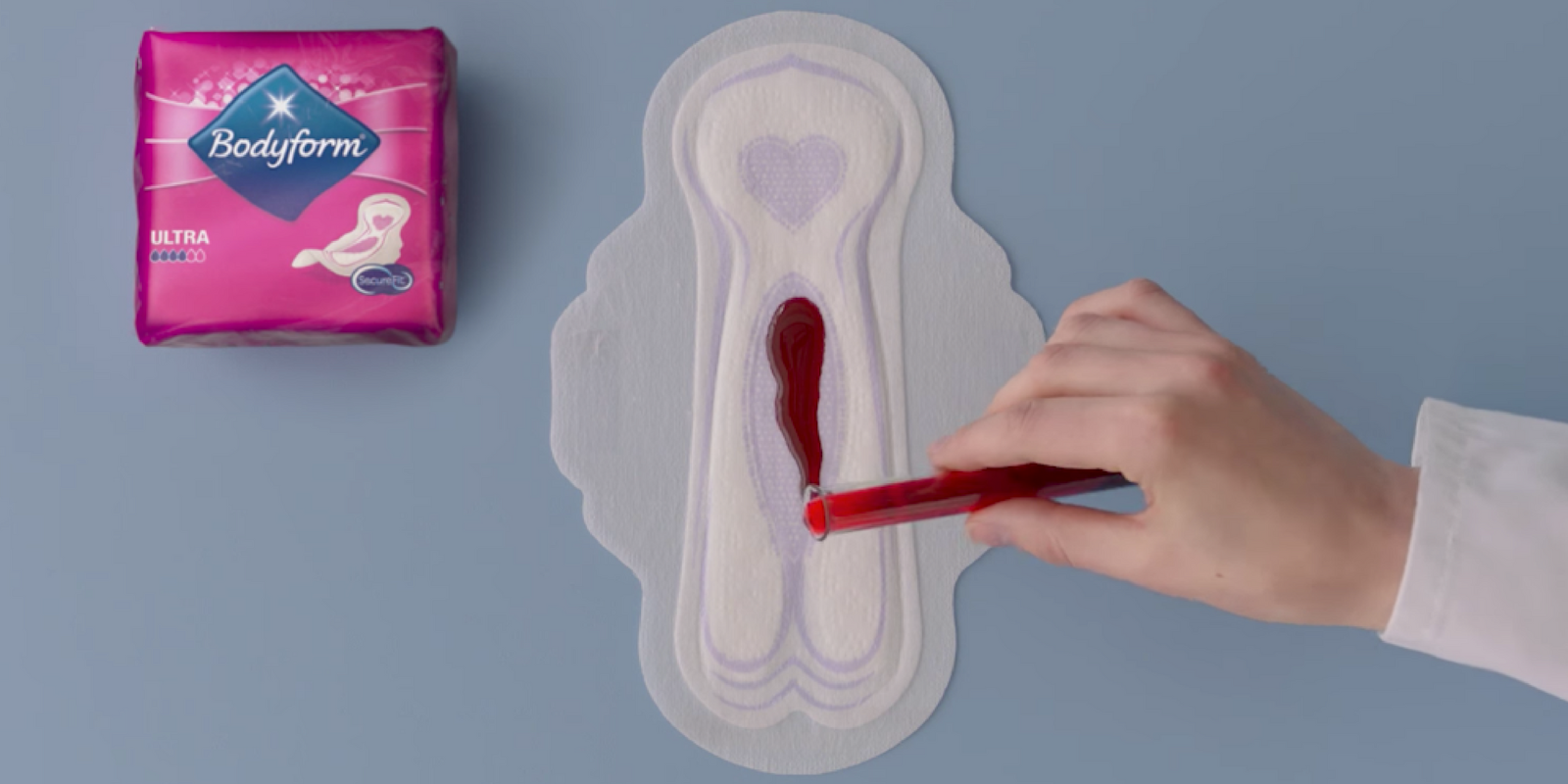One afternoon, in seventh grade, I was hanging in the band hall (yes, the classroom for kids who participated in band) when a friend named John did one of the most embarrassing, never-to-be-mentioned-again atrocities a 13-year-old could commit.
While fiddling with the zippers of my backpack, John opened the front-most pocket, reached in, blindly grabbed, and pulled out what was in there. He exclaimed, “What’s this?” then proceeded to sling the object across the room before he realized that it was, much to my and everyone’s horror, a menstrual pad. And because it was one of those thin but extra-wide pads, it somehow had the weight and aerodynamics to fly some 40 feet, planting itself into the percussion section of the band hall, right beneath the bass drum.
John was embarrassed, his face turning bright-red to match his orange hair before he quickly ran away, ignoring my shouts to at least pick up the product. He had, after all, dug his own grave by rifling through the backpack of a teenage female friend. But I got it—the situation was too awkward for him to proceed.
However, I was surprised to find that my friends and I, mostly young teen girls, were also too mortified to go near it, as if we hadn’t already learned about the product in annual “puberty talks” turned sex ed since elementary school, or weren’t already using them ourselves. I remember feeling frozen by my locker, unwilling if not unable to move to pick up the pad and discard it in a nearby trashcan.
I felt ashamed to even acknowledge the fact that menstrual products existed, let alone that I was someone who needed one.
I have no idea what happened to that pad. More than likely a janitor or, God forbid, one of our band directors, both men, discovered the product. The next day, it was gone—I know, because I remember actively careening my neck while locking up my clarinet case to check.
The experience was, in a word, scarring, and something I hadn’t recalled for years, until I watched an advertisement for Bodyform, a U.K. menstruation product brand. The ad, in part, shows a male teen, sitting in class, casually passing along a wrapped pad to his female classmate, as if it was a folded note. It was such an unanticipated trigger, seeing a teen boy hold a pad and remembering the good friend who frisbee’d one of mine across a room a decade ago. But watching that scene, I felt it was something I wish I had experienced when I was younger—social understanding, or comfort, between middle school-aged friends in acknowledging that periods are a common part of life, as are the products that come with them.
This appears to be the goal of Bodyform’s new ad campaign, “Blood Normal,” which goes further than acknowledging that period product ads from 2010 were inaccurate, and actually shows period blood. In a short version of the spot, we see the infamous blue liquid in pad demonstrations being replaced with red, as well as blood tricking down a woman’s legs in the shower.
“Periods are normal, showing them should be too,” the video’s copy reads.
In the longer ad (which is in Swedish), however, women are publicly asking friends for period products and changing their pads, looking visibly distraught in that all-too-familiar pose of being hunched over the toilet and feeling like your insides are falling out. We also see my would-be friend John passing along a period pad, no panicked face in sight.
According to the company’s website, it launched the #bloodnormal campaign in order to call out period taboos, reduce period stigmas, and increase realistic period representation. Through an online survey reaching more than 10,000 men and women, Bodyform says it found that 74 percent of respondents want to see more of these realistic period portrayals. Meanwhile, the company is working with people such as Saffron Herndon, the viral 12-year-old stand-up comic, to make that happen.
“By bringing blood out of the dark, onto our screens and into the conversation we’re paving a positive path for women of the future. After all, shouldn’t period-talk be as normal as periods themselves?” the website says.
It might be too late for me and John to rehash this experience and help make this posit a reality—the two of us never talked about the incident again, and he moved away after ninth grade. However, for Herndon’s generation, the #bloodnormal campaign will hopefully get the ball rolling.
Watch the full “Blood Normal” ad below:
https://www.youtube.com/watch?v=lm8vCCBaeQw&feature=youtu.be
H/T Mashable


